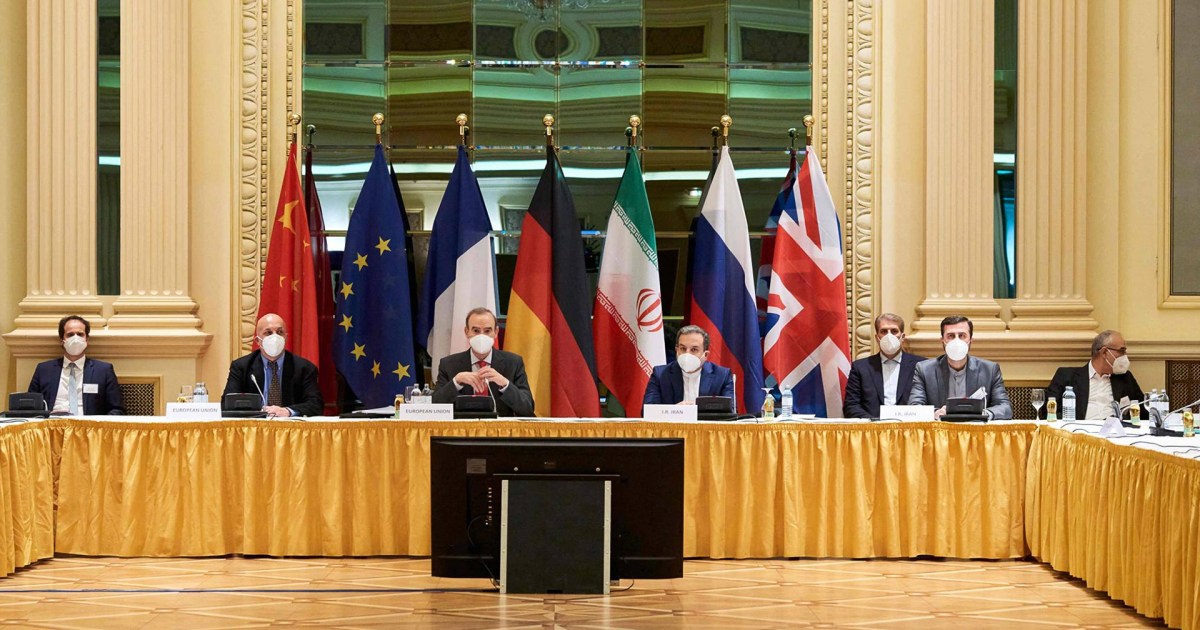The meetings of the parties to the Iranian nuclear deal concluded on Friday after 4 days of talks, and while Washington confirmed the presence of indications of Iran's seriousness, Tehran said it would not freeze steps to reduce the commitment based on unsecured positive indicators.
On the last day of the meetings, the participants reviewed the perceptions submitted by the expert committees regarding the steps that could be taken in order to reach a roadmap for the United States' return to the agreement.
The Russian delegate said that the countries participating in the meetings are satisfied with the initial achievement of the committees' work, indicating that the Nuclear Agreement Committee will meet next week to maintain the positive momentum achieved.
The Russian delegate added that if we succeed in the current endeavors, we can strengthen nuclear non-proliferation, reduce tension in the Gulf, and alleviate the suffering of the Iranian people.
He said that this time we shifted from talking about restoring the nuclear deal to starting practical steps in this direction.
For his part, the Chinese delegate said that the parties are in a race against time for the return of the United States and Iran to abide by the nuclear agreement.
American optimism
"Washington is ready to take the necessary steps to return to the nuclear agreement and lift the sanctions," State Department spokesman Ned Price said.
In turn, a senior US State Department official described the Vienna talks as constructive, and affirmed that Washington had put forward serious ideas to comply with the nuclear agreement.
The senior Foreign Ministry official indicated to reporters, in a telephone statement, to what he called initial indications of Tehran's seriousness regarding its nuclear file, but said it was not sufficient.
He said Washington prefers to hold direct talks with the Iranians, but their refusal makes the task difficult.
The senior US official added that the maximum pressure campaign had failed to curb Iran's actions in the region.
For her part, French Foreign Ministry spokeswoman Agnes Vaughn said, "Her country stresses the need for Iran to refrain from any further violation of its nuclear obligations that might undermine the current dynamic."
The spokeswoman added that the talks that took place in Vienna were constructive and aimed at the return of Iran and the United States to full implementation of the nuclear agreement.
She indicated that these talks are evidence of the common desire of all, in addition to the United States, to quickly reach a diplomatic solution that allows the agreement to be preserved.
Tehran's position
But a spokesman for Iran's Atomic Energy Commission, Behrouz Kamalondi, stressed that it was too early to judge whether the results of the Vienna talks were positive or not.
Kamalondi added that any delay in returning to the nuclear agreement would complicate the situation even more, stressing that Iran would not freeze steps to reduce commitment based on positive indications that are not guaranteed.
He explained that the list of sanctions that Iran has requested to lift includes 1,600 forms of sanctions.
Kamalondi indicated that European countries want to implement the nuclear agreement and seek to urge Washington to revive the agreement, he said.
He stressed that Iran is continuing to redesign the Arak reactor, and that practical tests will be conducted within two months in preparation for its operation.
Iran proposes logical path to full JCPOA compliance:
-US — which caused this crisis — should return to full compliance first;
-Iran will reciprocate following rapid verification;
-All Trump sanctions were anti-JCPOA & must be removed — w / o distinction between arbitrary designations.
- Javad Zarif (@JZarif) April 9, 2021
In a related context, Iranian Foreign Minister Muhammad Javad Zarif said that his country had proposed a logical path to comply with the joint action plan, including the return of Washington - which caused the crisis - to full compliance with the plan.
Zarif added - in a tweet - that Tehran would reciprocate after this is achieved by Washington.
He pointed out that all the sanctions imposed by former US President Donald Trump were against the Joint Action Plan, and that the sanctions should be lifted without distinguishing between the designations, which he described as arbitrary.

